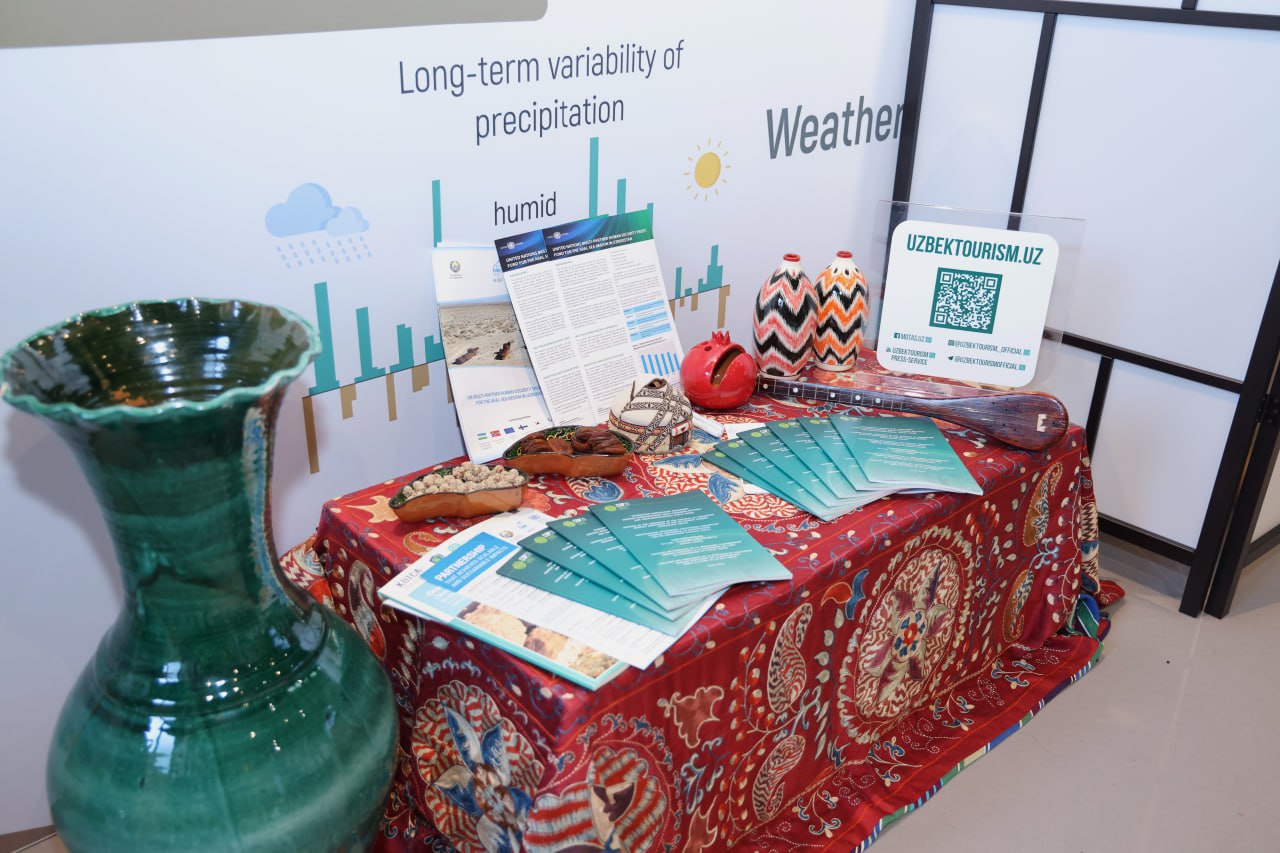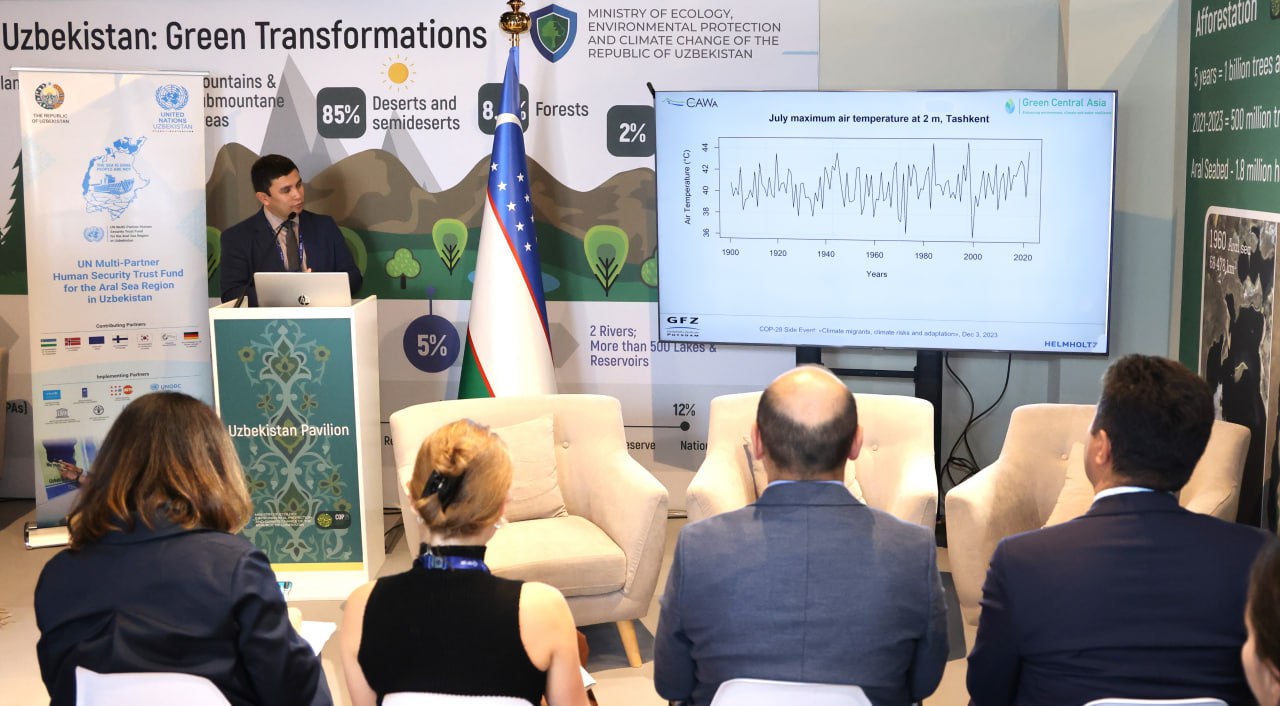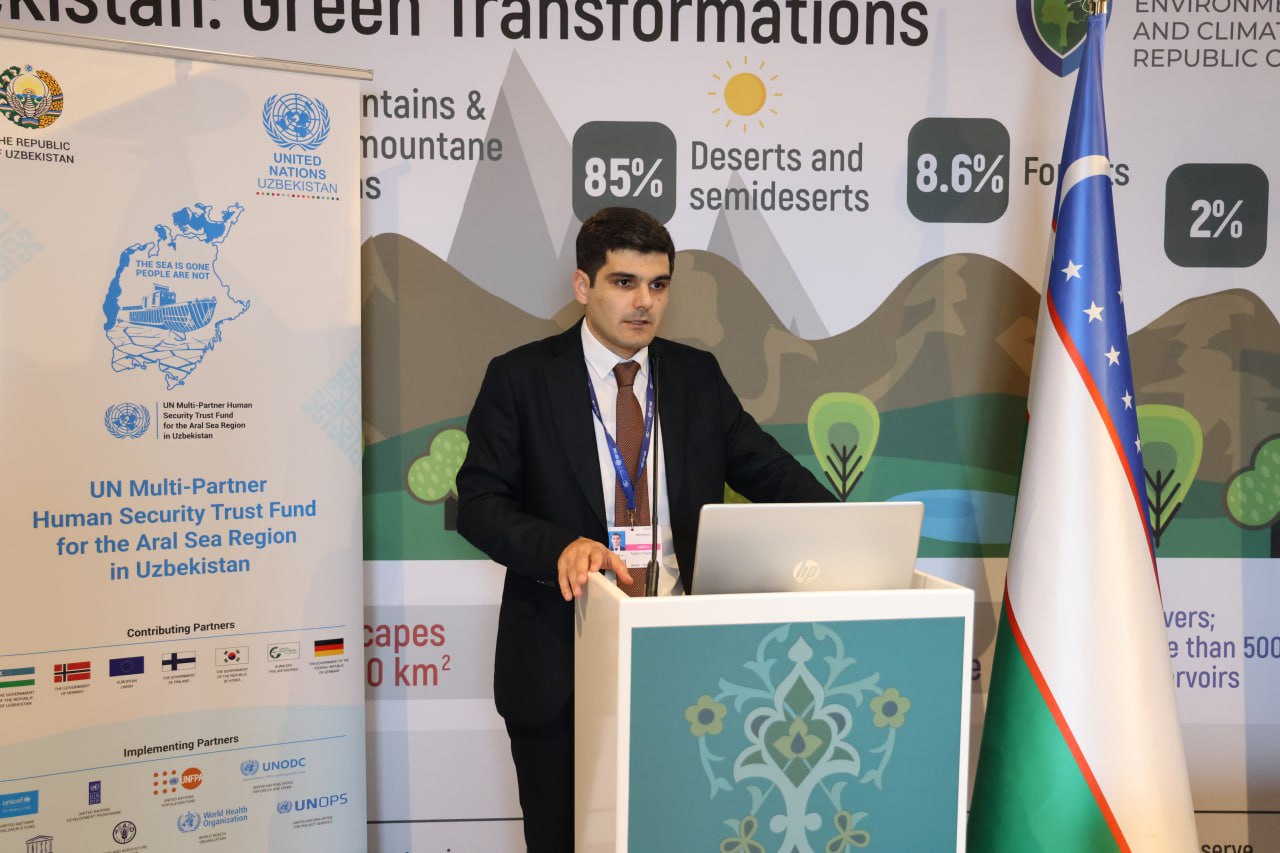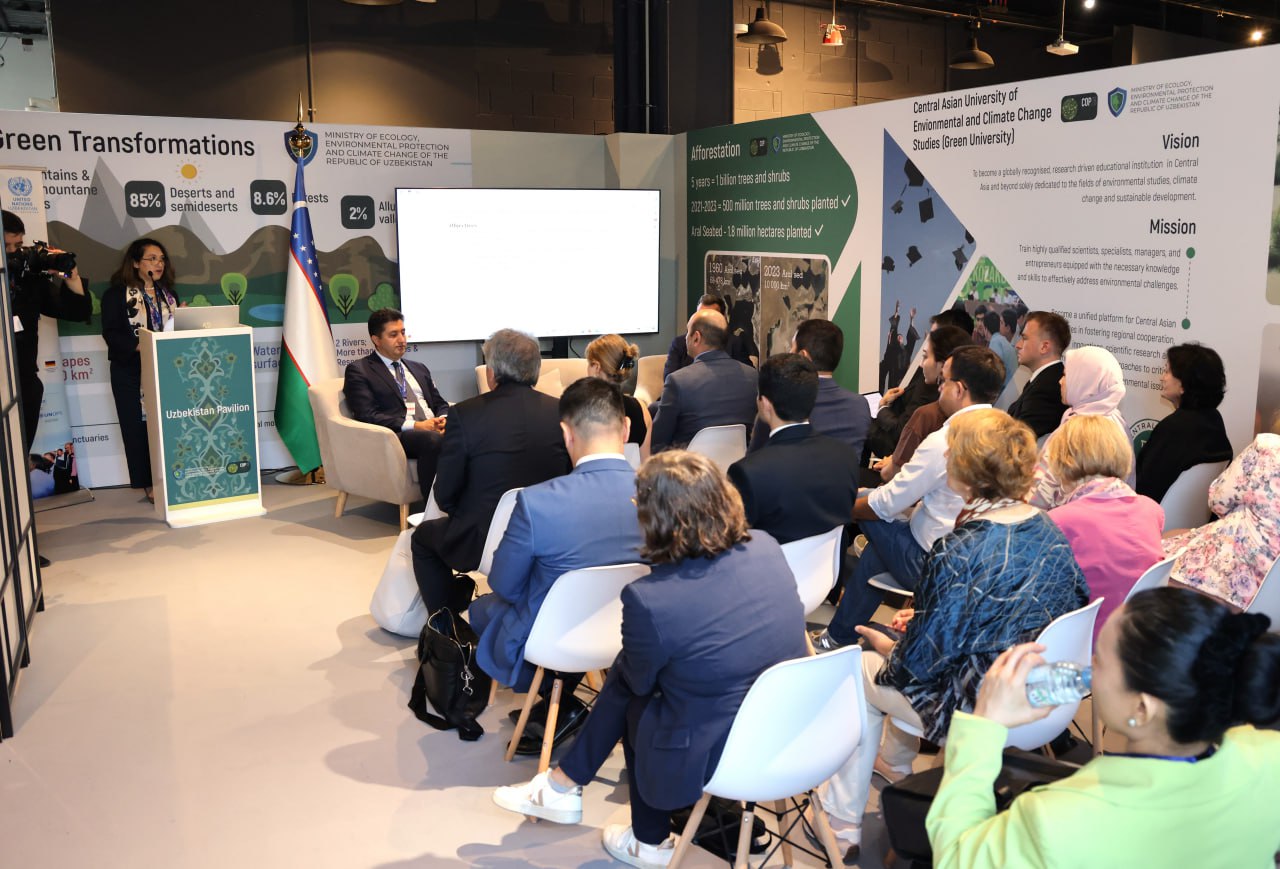
An event on the topic of "Climate Migrants, Climate Risks, and Adaptation" took place at the Uzbekistan Pavilion in Dubai as part of the COP28 international climate forum. The efforts of Uzbekistan in adapting to climate risks and mitigating their consequences were highly appreciated at the forum.
The goal of the event was to bring together all stakeholders from Central Asian countries and related institutions to exchange experiences regarding climate change risks and migration. This will allow for a reliable assessment of potential risks and strategies to mitigate the negative consequences and the flooding of glacial lakes.
The event was attended by Ms. Esra Buttanri,Senior Climate Change Advisor, Office of the Co-ordinator of OSCE Economic and Environmental Activities, OSCE ,Mr. Torsten Brezina, Regional Project Cluster Coordinator for GIZ in Central Asia; Mr. Pablo Escribano, Regional Specialist on Migration, Environment, and Climate Change at the International Organization for Migration (IOM); Mr. Sino Takhirzoda, Head of Department ,Committee on Environmental Protection under the Government of the Republic of Tajikistan; Mr. Toghrul Feyzili, Senior Advisor of the Division for Climate Change and International Cooperation, Ministry of Ecology and Nature Resources of the Republic of Azerbaijan and others.
"The consequences of climate change pose a number of problems worldwide. Due to climate and non-climate factors, nearly half of the world's population experiences serious water shortages, at least during certain periods of the year," said A. Abdukhakimov. "Often, they leave their territories. According to recent studies, the number of climate migrants could reach 1.2 billion by 2050. The link between the environment, development, and security is a key factor influencing the regional landscape of Central Asian republics," the minister added.
It is worth noting that research shows that over the past 50-60 years, the surface area of glaciers in Central Asia has decreased by 30%, directly affecting rivers and their ecosystems. The average annual temperature has risen by 1.5 degrees Celsius in recent decades, and according to forecasts, it will increase by 2-5.7 degrees Celsius by the end of the century.
The Minister of Ecology also emphasized the importance of the participation and speech of the President of the Republic of Uzbekistan, Shavkat Mirziyoyev, at the COP28 World Climate Summit, and stated that climate protection and environmental conservation have become a priority in Uzbekistan.
"The Government of Uzbekistan, under the leadership of President Shavkat Mirziyoyev, has made the climate agenda a priority," the minister noted. "Across the country, trees are being planted as part of the national project 'Yashil Makon' ('Green space '). A campaign to create forests in the Aral Sea region has also begun. In addition, measures are being taken to integrate adaptation and climate change mitigation principles, renewable energy sources, a circular economy, and principles of green growth," A.Abdukhakimov added.
Aziz Abdukhakimov noted that it is necessary to work together to address environmental problems such as climate change.
The event highlighted that the previous winter in Central Asia, particularly in Uzbekistan, was the coldest in the past decade. At the same time, many countries around the world experienced abnormally dry and hot temperatures. It was also noted that climate risks know no boundaries, and their consequences affect multiple countries and regions simultaneously, which led to discussions on finding effective solutions to these problems.
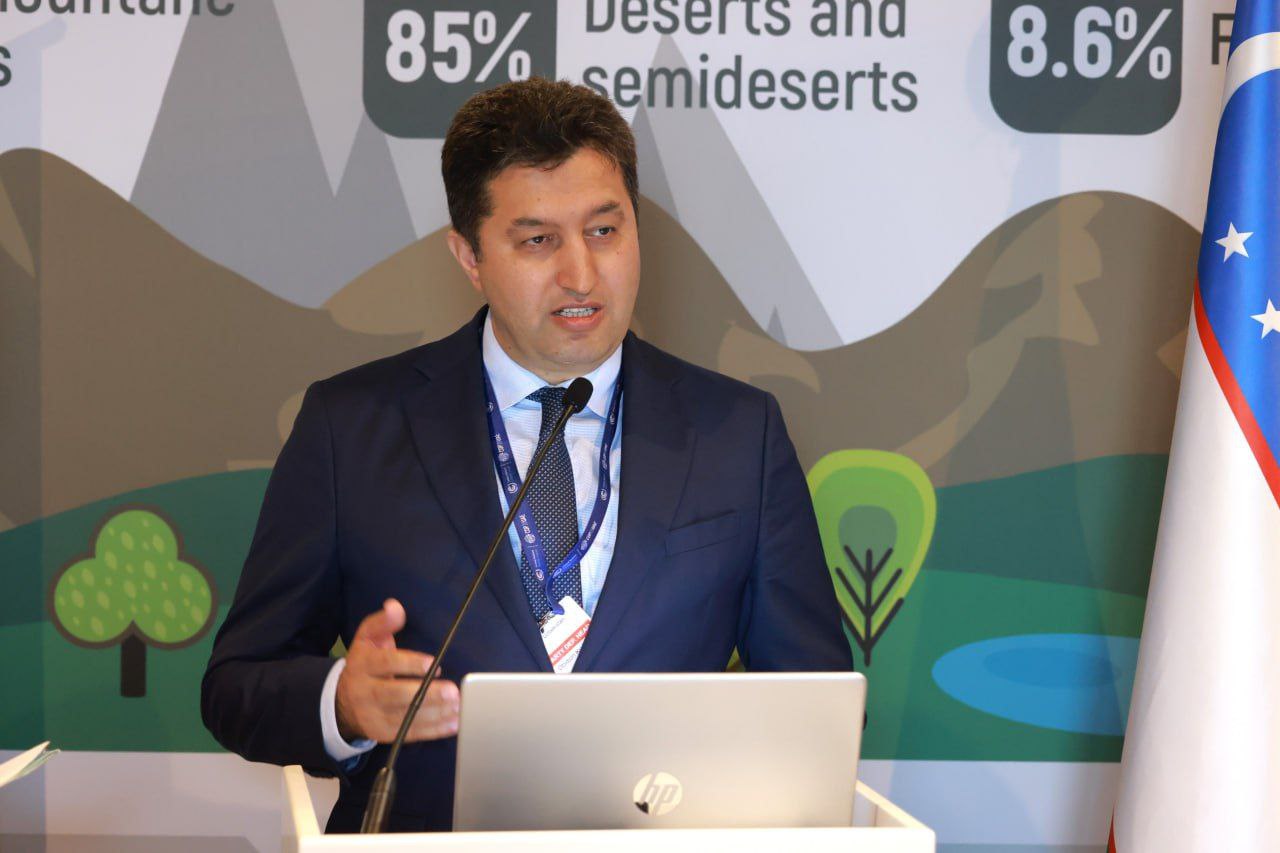
.jpg)
